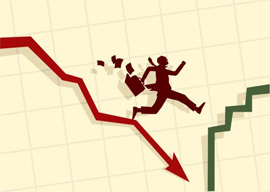
November 27, 2012

Having lost the presidency and seats in both houses, Republicans should not partner with a president with whom they disagree on principle.
They should act as the loyal opposition in a parliamentary system whose duty it is to oppose, to offer an alternative agenda and to wait upon the success or failure of the government, as Labor is doing in Britain and the conservatives are doing in France.
What should Speaker John Boehner do?
Tell the president politely that America’s problem is not that we are taxed too little but that we spend too much—and the GOP will not sign on either to tax rate or tax revenue increases. For Republicans believe that would further injure the economy—especially an economy limping along at between 1 and 2 percent growth.
Then Boehner should depart the White House, go back up to the Hill and urge his Republican caucus to do two things.
Pass an extension of the Social Security payroll tax cut and block its automatic rise from 4.2 percent of wages to 6.2 percent. To raise that tax now and scoop off the discretionary income of most of America’s families in this anemic economy makes no sense economically or politically.
The House should then vote to extend the Bush tax cuts for another year, with a pledge to do tax reform—lowering tax rates in return for culling, cutting or capping deductions for the well-to-do in the new year.
Then let Harry Reid work his will. If the Senate votes to let Social Security taxes rise, let Harry and his party explain this to the middle class that gets hammered in January. If the Senate votes to let the Bush tax cuts lapse for those over $200,000, decide in the caucus whether to negotiate—or to go home for Christmas and New Year’s.
As for the automatic sequester that would impose $100 billion in cuts next year, half in defense, do nothing. Let it take effect. The budget has to be cut, and while these cuts are heavy on defense, the depth and mixture can be adjusted in the new year.
If Republicans walk away from tax negotiations with the White House, market investors, anticipating a sharp rise in tax rates on dividends, interest and capital gains next year, will start dumping stocks, bonds and investments to take advantage of the last year of lower taxes.
The market may tank. Let the party of high taxes explain it.